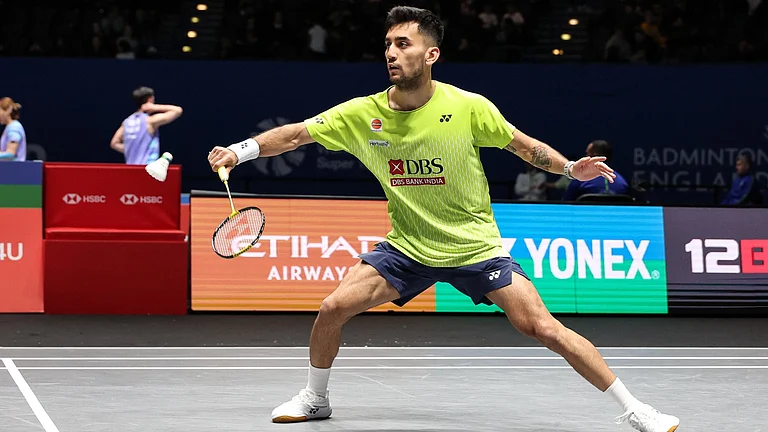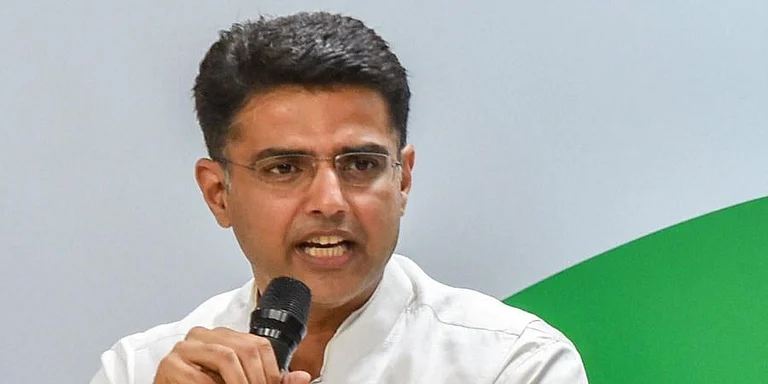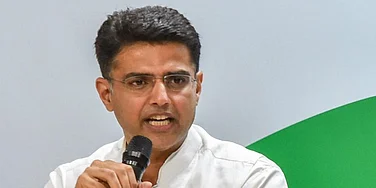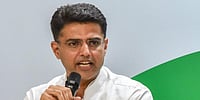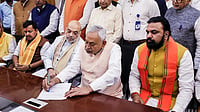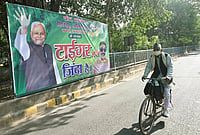Amid ongoing India-Canada diplomatic row, the Canadian government on Thursday suspended in-person consular services at three consulates general in India.
The three consulates general where services have been suspended are in Chandigarh, Mumbai, and Bengaluru.
The decision coincided with Canada withdrawing 41 diplomats from India after the Narendra Modi government had asked Canada to do so.
In an update on the foreign ministry website, the Canadian government said services would continue normally at the High Commission in Delhi.
"The Consulates General of Canada in Bengaluru, Chandigarh, and Mumbai are temporarily suspending in-person operations. You can obtain consular assistance and further consular information from the High Commission of Canada in New Delhi. Consular services in person remain available at the High Commission of Canada in New Delhi," says the update posted on the Canadian foreign ministry's website on Thursday.
This is the latest development in the ongoing row between India and Canada which began last month when Canadian Prime Minister Justin Trudeau alleged there was a "potential link" of Indian agents with the death of a Khalistani terrorist in Canada, identified as Hardeep Singh Nijjar. Trudeau's government followed this claim with the expulsion of a senior Indian diplomat posted in Canada, who it also outed publicly as the station chief of Indian external intelligence agency. In a tit-for-tat reaction, India also expelled a senior Canadian diplomat posted in India, who has been identified as Olivier Sylvester, the station chief of Canadian intelligence agency in India.
Moreover, India suspended visa services for Canadians across the world and asked Canada to withdraw 41 diplomats from India, failing which they and their families would lose diplomatic immunities.
Canada's Foreign Minister Melanie Joly on Thursday confirmed that 41 diplomats have been withdrawn from India. She also termed the Indian action "arbitrary" and added that the withdrawal of immunity would have risked safety of diplomats and their families.
"I can confirm that India has formally conveyed its plan to unilaterally remove diplomatic immunities for all but 21 Canadian diplomats and dependents in Delhi by tomorrow, October 20...This means 41 Canadian diplomats and their 42 dependents were in danger of having immunity stripped on an arbitrary date, and this would put their personal safety at risk...The safety of Canadians and of our diplomats is always my top concern. Given the implications of India's actions on the safety of our diplomats, we have facilitated their safe departure from India. This means that our diplomats and their families have now left," said Joly, as per PTI.
Joly further said Indian actions were not in line with international law and were "arbitrary".
"A unilateral revocation of diplomatic privileges and immunities is contrary to international law. Threatening to do so is unreasonable and escalatory. If we allow the norm of diplomatic immunity to be broken, no diplomats anywhere … would be safe," said Joly.
While Joly said that Canada will not reciprocate the Indian action, it may be noted here that the spiral began with the Canadian action of publicly naming of an Indian official as a spy chief and his expulsion from the country.
Last month, Trudeau plunged the India-Canada relations to a new low when he accused India of a "potential" role in the killing of a Nijjar, a designated terrorist who died in a shooting in Canada's British Columbia province earlier this year. Nijjar was the chief of Khalistan Tiger Force (KTF), a designated terrorist organisation.
For years, the India-Canada relations have been strained over the Khalistan movement and leaders finding a safe haven in Canada. The Khalistan refers to the movement to carve out a separate nation for the Sikhs out of India. For years, the movement waged a bloody insurgency in India that only ebbed in the 1990s. While the insurgency ebbed, the movement found pockets of influence abroad, particularly in Canada where a large number of Khalistani terrorist leaders and organised crime syndicates are based that are engaged in anti-India activities.
Such tensions have only increased ever since Trudeau became the Prime Minister of Canada as Khalistani forces have found newfound tolerance from him, his allies, and his government. Over the years, Indian missions in Canada has been repeatedly subjected to violence, open threats of deaths are made against Indian diplomats, and Hindu temples are vandalised, but the Trudeau administration has done little to nothing to address these concerns.
In the ongoing row, Canada has alleged it has human and technical intelligence to back the "credible allegations" of potential Indian role in Nijjar's killing. India has forcefully rejected the Canadian claim and has said that no real evidence has yet been shared.
India has slammed Canada for diplomats withdrawal:
Meanwhile, the Centre has said that no international norms were violated in India seeking parity in the mutual diplomatic presence in New Delhi and Ottawa.
"We reject any attempt to portray the implementation of parity as a violation of international norms," the MEA said in a statement.
"The state of our bilateral relations, the much higher number of Canadian diplomats in India, and their continued interference in our internal affairs warrant a parity in mutual diplomatic presence in New Delhi and Ottawa," it added.



